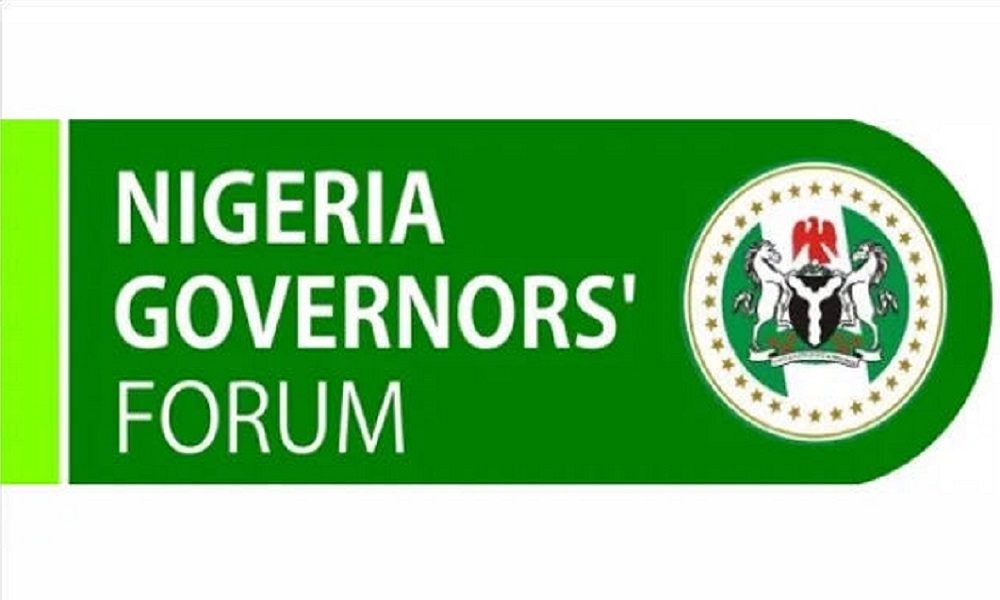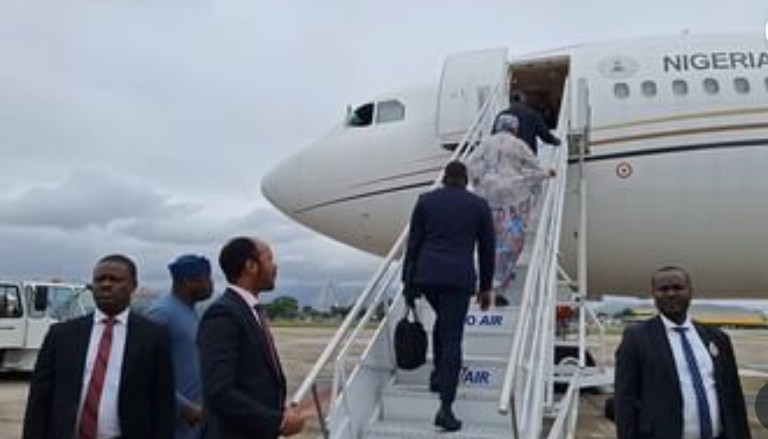News
Minimum wage: New minimum wage may push states into bankruptcy — NGF report

As the nation awaits the new minimum wage promised to be sent to the National Assembly by President Bola Tinubu, the burden of implementing the minimum wage may make many states bankrupt.
The Federal Executive Council, at its meeting last Tuesday, stepped down a memorandum on the report of the tripartite committee on the new minimum wage, to allow for more consultations among the federal and state governments on one part, the private sector and the labour unions on the other part.
Last Thursday, Tinubu met with the governors at the National Economic Council meeting chaired by Vice President Kashim Shettima. The meeting, which was expected to deliberate on the national minimum wage, was, however, silent on whether or not it considered the issue.
Also last Thursday, the Southern Governors’ Forum released the communiqué of its meeting held in Abeokuta, Ogun State, with the governors asking that each state should negotiate minimum wage with its workforce.
The labour unions have, however, reacted to the stance of the Ni¬geria Governors’ Forum over their overbearing influence on the minimum wage negotia¬tions.
In a document, titled, “Analysis of State FAAC inflows and state expenditure profile,” of the Nigeria Governors’ Forum Secretariat, the NGF report warned that implementing the new minimum wage could push states into bankruptcy due to increased recurrent expenditure.
According to the report, the burden of recurrent expenditure already left Abia, Ekiti, Gombe, Imo, Katsina, Kogi, Oyo, Plateau, Sokoto, Yobe, and Zamfara in deficit in 2022.
The report predicted that if the recurrent expenditure increased by 50 per cent, 13 states would fall into deficit, with only 10 remaining financially stable.
The tripartite committee’s recommendation of a N62,000 minimum wage would necessitate over a 100 per cent increase from the current N30,000, potentially leaving only a few states like Anambra, Bayelsa, Borno, Ebonyi, Gombe, Imo, Jigawa, Kaduna, Lagos, and Rivers with positive net revenues, based on the 2022 fiscal data.
A net revenue is the deduction of recurrent expenditure from the total revenue of the state. When it is positive, it means a surplus, but when negative, there is a deficit.
Also, the total revenue of states is calculated from the monthly revenue from the Federal Account Allocation Committee, internally generated revenue, aids and grants and constituency development funds.
According to the documents, with an employment size of about 58,631 workers, pays N5,837,899,980.40 as wage monthly. Anambra has a 20,541 employment size and pays N1,824,851,308.96 monthly as wages, apart from N894,480,399.62 as pension obligation and N579,694,680.33 for debt servicing.
Bayelsa boasts of 48,213 workforce, paying N5,802,435,178.58 monthly, with N1,194,528,784.40 as pension obligation and N3,535,787,992.48 as debt servicing, totalling N10,532,751,955.46 as total recurrent expenditure monthly.
Benue has about 13,366 workers in its workforce and pays N2,040,184,471.85 as monthly wage, N76,838,634.62 for pension, and N64,685,126,826.08 for debt servicing, totalling N66,802,149,932.56 monthly.
Delta has about 50,871 workers, offering N8,973,081,853.50 as wages, N1,499,886,303.39 as pension, and N72,417,433,139.00 as debt servicing, accumulating to N82,890,401,295.89 in a month.
Jigawa has about 44,831 workers in its employ and pays N2,795,662,113.02 as wages, and N345,987,843.12 as a pension, totalling N3,141,649,956.14 monthly on recurrent expenditure.
Katsina, Kwara and Niger have 19,062, 36,048 and 22,225 workers, with accumulated N139,294,944,565.27, N4,457,268,675.54 and N2,653,614,213.35 monthly recurrent expenditure respectively.
According to the document, Abia has a total recurrent expenditure of N111,983,979,958.62, against a total revenue of N147,637,730,867.73.
For Adamawa, the recurrent expenditure stands at N70,369,399,885.57, against a total revenue of N109,722,949,684.65, while Akwa Ibom boasts of a high revenue of N444,288,683,000, with recurrent expenditure of N235,144,539,000.
Of the states, Lagos has the highest total revenue, amassing N1,243,778,878,170 in 2022, with a recurrent expenditure of N621,043,036,000, followed by Delta, with N702,020,717,460.08 and a recurrent expenditure of N377,905,100,451.83.
Rivers amassed N525,588,159,714.88 in 2022, with recurrent expenditure of N186,974,715,774.87; Kaduna had a total revenue of N222,349,875,000 and expenditure of N95,987,999,472.10; Ogun, N297,249,009,626.83, recurrent expenditure of N178,519,010,628.42 and Oyo, with total revenue of N247,156,776,739.70 and recurrent expenditure of N152,077,804,384.65.
Kebbi State had the lowest total revenue in 2022, raking in N92,132,444,588.16 and spent N57,601,464,374.96 on recurrent expenditure, followed by Taraba, with a total revenue of N101,177,283,069.87 and recurrent expenditure of N75,055,201,412.62.
Aside from FAAC allocation, some states recorded poor IGR in the 2022 data compiled by the NGF Secretariat.
Zamfara State generated N6,513,960,477.20; followed by Kebbi, with N8,630,767,122.96; Taraba, N9,744,331,840.01 and Yobe State, with N9,940,554,642.00.
The IGR of Katsina (N12,821,119,042.64), Adamawa (N13,175,774,969.53), Niger (N14,427,373,136.00), Benue (N15,021,223,729.38), Plateau (N15,927,001,739.90) and Imo (N16,711,346,111.18) also showed a poor revenue standing.
The PUNCH reported on October 19, 2023, that 15 states have yet to implement the N30,000 minimum wage for their workers since it was signed into law in 2019.
According to BudgiT, though the 15 states were yet to implement the minimum wage of N30,000, the 36 states of the federation grew their cumulative personnel cost by 13.44 per cent to N1.75tn in 2022 from N1.54tn in 2021.
The civil society organization, in a release, ‘The States of States Report 2023,’ highlighted that the 36 states of the federation grew their revenue by 28.95 per cent from N5.12tn in 2021 to N6.6tn in 2022.
“Put together, the IGR of the 36 states appreciated by 12.98 per cent from N1.61tn in 2021 to N1.82tn in 2022, denoting a strengthened domestic revenue mobilisation capability.
“Nonetheless, the IGR to GDP ratio remained very low at 1.01 per cent. The increase in IGR did not reflect across the board as 17 states experienced a decline in their IGR from the previous year, while 19 states recorded positive growth,” BudgIT said.
The Assistant General Secretary of the NLC, Chris Onyeka, in an interview with the News Agency of Nigeria on minimum wage and its implementation, claimed that many state governors were flouting the Minimum Wage Act and listed the states of Abia, Enugu, Bayelsa, Delta, Nasarawa, Gombe, Adamawa, Niger, Sokoto, Imo, Anambra, Taraba, Benue, and Zamfara as defaulting.
Reacting, the Enugu State chairman of TUC, Ben Asogwa, said the state commenced payment of N30,000 minimum wage and its consequential adjustment in February 2020 for state government workers, while local government workers and primary school teachers were paid 25 per cent consequential adjustment.
He, however, said Governor Peter Mbah, on assumption of office, approved the full implementation of the N30,000 minimum wage for both the LG workers and primary school teachers in the state.
The Zamfara State Governor, Dauda Lawal, announced during a meeting with the leadership of the labour unions that the state would begin payment of N30,000 minimum wage effective June 2024.
News
HoR to Lead March, Launch Initiatives Against Gender-Based Violence

By Gloria Ikibah
As part of the annual 16 Days of Activism Against Gender-Based Violence, the House of Representatives is set to lead a historic march on Monday, November 25, 2024, in a bold effort to tackle gender-based violence (GBV) in the country.
The march, which begins at 8:00 AM, will see over 1,000 participants, including lawmakers and members of the public walk from the National Assembly to the Nigeria Police Force Headquarters in Abuja. The event will culminate in the submission of a petition to the Inspector General of Police, demanding decisive action against GBV and greater protection for vulnerable groups.
Speaking about the initiative, the Speaker of the House of Representatives, Rt. Hon. Abbas Tajudeen, PhD., GCON, said, “This march and the activities that follow are not mere gestures but a reflection of our determination to confront gender-based violence head-on. We are committed to building a society where justice, equality, and safety prevail for all Nigerians.”
In a statement by the House Spokesperson, Rep. Akin Rotimi on Saturday in Abuja, he said, “The 10th House of Representatives has reaffirmed its commitment to systemic reforms, collaboration, and accountability in the fight against gender-based violence.
“In addition to the march, the House has outlined key activities in alignment with its Legislative Agenda (2023–2027) to sustain awareness and action throughout the campaign period.
“Sash Demonstration Ceremony – Tuesday, November 26, 2024
“Convergence of State Assembly Speakers – Monday, December 9, 2024. A strategic meeting at the Transcorp Hilton, Abuja, will bring together Speakers of State Houses of Assembly to discuss legislative measures for combating GBV nationwide.
“National Citizens’ Summit and GBV Conference 2024 – Tuesday, December 10, 2024. The summit will focus on constitutional reforms and securing endorsements for gender equality initiatives led by the House of Representatives”.
Naijablitznews.com reports that this year’s 16 Days of Activism aims to galvanise nationwide efforts and inspire collective action to protect human rights, ensure justice, and create a safer, more equitable Nigeria.
News
NUJ-FCT Elections: Comrade Ike To Flag-Off Campaign With Free Medical Checks, Treatment


News
President Tinubu Leaves Brazil After G20 Summit

President Bola Tinubu has departed Galeao Air force Basa (SBGL) Airport, Rio de Janeiro, Brazil, on Saturday, for Abuja after attending the 19th G20 Leaders Summit in Rio de Janeiro, Brazil.
The President is due to arrive at the Presidential Wing of Nnamdi Azikiwe International Airport, Abuja, at 10.00 p.m. (Nigerian time).
President Tinubu had attended the G20 Leaders summit where he endorsed the global alliance against hunger and poverty, which he said was pivotal.
The President also held bilateral talks with Kristalina Georgieva, the Managing Director of the International Monetary Fund (IMF), who commended his administration’s economic reforms and their positive indicators.
He also presided over the signing of a 2.5 billion dollar Letter of Intent between the Nigerian government and the JBS S.A., a Brazilian company and one of the top three largest meat processing companies in the World.
The president was accompanied in the trip by senior government officials including the minister of foreign affairs yusuf Tuggar, the national security adviser, Nuhu RIBADU and many others.
-

 Metro15 hours ago
Metro15 hours agoBusinessDay Journalist Finally Regains Freedom From ‘One-Chance’ Kidnappers In Abuja
-

 Metro19 hours ago
Metro19 hours agoCourt remands 113 foreigners over alleged cybercrime
-

 Metro15 hours ago
Metro15 hours agoPolice recover stolen SUV after gun duel with robbers in Abuja
-

 News20 hours ago
News20 hours agoFull List: Innoson, Mitsubishi, Dantama , Others – CAC Delists 80,000 Companies
-

 News21 hours ago
News21 hours agoJapa: We’ve discovered over 10,000 fraudulent foreign student acceptance letters – Canadian Authorities
-

 Metro20 hours ago
Metro20 hours agoGunmen kidnap journalist’s relatives, demand N50m ransom
-

 News20 hours ago
News20 hours agoFG reinstates Ikechebelu and Modebelu as UNIZIK Acting VC and Registrar
-

 News15 hours ago
News15 hours agoFG insists Rivers State funds is intact was never stopped








